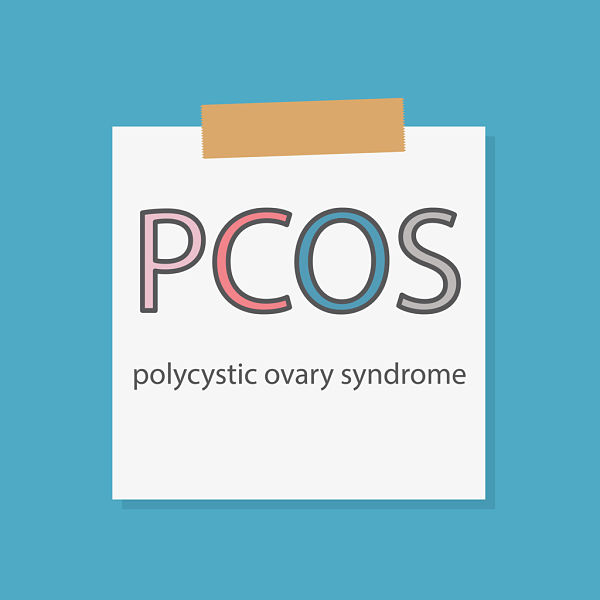PCOS and the importance of managing complications

Most people experiencing the signs and symptoms of PCOS will be diagnosed in their late teens and early twenties. Typically these are some or all of the following:
- Irregular or no periods
- Excessive hair growth on the face, chest, back or buttocks
- Weight gain
- Thinning scalp hair or hair loss
- Oily skin or acne
If symptoms are mild and you’re not at the stage of life when you’re considering a family, it may be tempting to believe that medical treatment or a change in lifestyle is not necessary – perhaps using laser treatment to manage your facial hair growth and over the counter skin cosmetics to treat acne…
However this is unwise as you would be ignoring the risk of developing complications as you become older.
Complications in PCOS
It’s important to remember that, whilst you are at increased risk of the following conditions, these ARE preventable
Type 2 diabetes – I talk about this link here
Sleep apnoea – interrupted breathing during sleep which can lead to lack of oxygen.
Depression – covered in this post
High blood pressure and high cholesterol leading to an increased risk of heart disease and stroke
Cancer of the womb lining (in those who have fewer than 3 or 4 periods each year). I talk about irregular periods here
Metabolic Syndrome – a grouping or risk factors commonly associated with PCOS which increases the risk of cardiovascular disease.
Managing your risk
The first thing to do is adopt a healthy diet and a sound exercise regime. This will help you to reduce the risk of weight gain which is all too typical in those with PCOS and which can be a trigger for several complications. My blog post on the best PCOS diet is here
If you think PCOS is a possibility – particularly if your mother or sister has been diagnosed with this – you should seek advice from your GP who will use blood tests and a pelvic ultrasound scan to make a diagnosis. Your GP will then ask you about the medical history of your family and discuss lifestyle changes and any medications which may help the condition. They will almost certainly suggest annual blood tests which you should attend in order to manage your overall risk as you get older and they may also refer you to a specialist.
Even if you’re not thinking of starting a family you should not just ignore the fact of irregular periods as these lead to a higher than average risk of getting endometrial cancer. In a 2018 study this risk has been defined as a 2.7 fold increase.
About 3% of women without PCOS are at risk of uterine cancer which is the 4th most common cancer in UK females. Incidence rates rise steeply from the age of 45 to 49 and peak at the age of 65 to 70. Like all cancers it’s important to obtain early diagnosis and treatment so here are the symptoms to look out for:
- Unusual bleeding from the vagina
- Bleeding during menopause
- Pain during sex
- Pelvic pain
- Feeling less hungry and nauseous
- Feeling tired
- Anaemia
- Pain whilst urinating
There is strong evidence that taking oral contraception can protect against endometrial cancer, ovarian cancer and ovarian cysts so combined hormonal contraceptives (containing both oestrogen and progestogen) are recommended as first line of treatment for women with PCOS.
For those women who cannot take the combination pill, the mini pill - which only contains progestogen - will also prompt regular periods reducing your risk of endometrial cancer.
I hope this has been helpful.
Although every effort is made to ensure that all health advice on this website is accurate and up to date it is for information purposes and should not replace a visit to your doctor or health care professional.
As the advice is general in nature rather than specific to individuals Dr Vanderpump cannot accept any liability for actions arising from its use nor can he be held responsible for the content of any pages referenced by an external link










